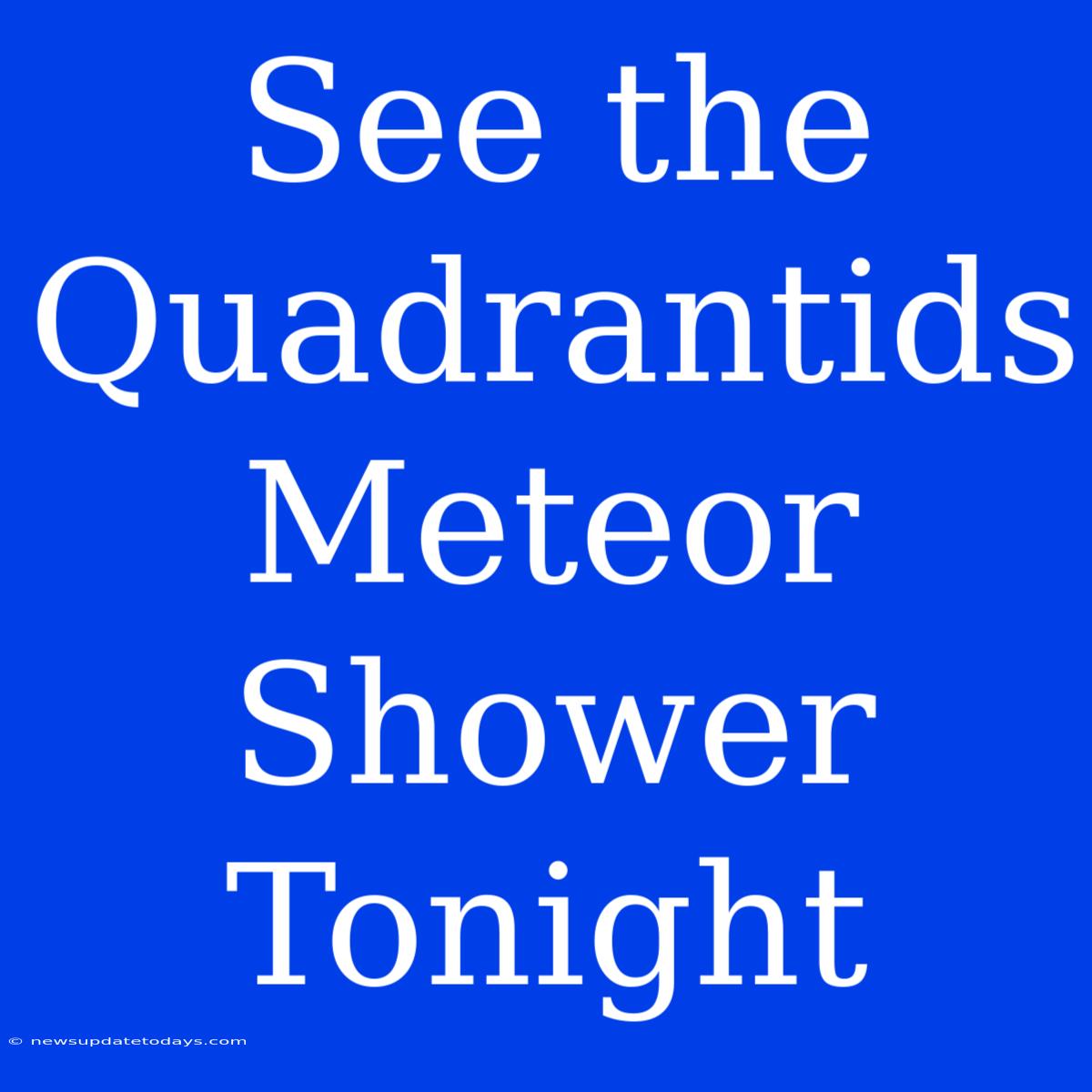Don't Miss It! Witness the Spectacular Quadrantid Meteor Shower Tonight!
The Quadrantids meteor shower, known for its vibrant and intense displays, peaks tonight! Don't miss your chance to witness this celestial spectacle. This article will guide you on how to best view this stunning astronomical event.
What are the Quadrantids?
The Quadrantids are one of the strongest meteor showers of the year, capable of producing up to 100 meteors per hour at its peak. Unlike many showers originating from comets, the Quadrantids' parent body is believed to be an asteroid, 2003 EH1. This asteroid's debris trail interacts with Earth's atmosphere, creating the breathtaking streaks of light we see as meteors.
When and Where to Watch:
Peak Time: The shower's peak is relatively short, lasting only a few hours. Check online resources for the precise peak time in your location. Tonight is your best bet!
Location: Find a dark location away from city lights. Light pollution significantly reduces visibility. The darker the sky, the more meteors you'll see. Consider heading to a rural area or a park with minimal artificial light.
Viewing Direction: While the radiant point (where the meteors appear to originate) is in the constellation Boötes, you don't need to look directly at it. Meteors will appear across the sky.
Tips for Optimal Viewing:
- Be Patient: Give your eyes at least 30 minutes to adjust to the darkness.
- Bring Warm Clothing: Evenings can be chilly, so dress warmly.
- Bring a Blanket or Chair: You'll be looking up for a while, so comfort is key.
- Check the Weather: Clear skies are essential. Check the weather forecast before you go.
- Avoid Using Your Phone: The light from your phone will ruin your night vision.
- Share the Experience: Bring friends or family to enjoy the show together.
Beyond the Shower:
Tonight's Quadrantid meteor shower offers a fantastic opportunity to reconnect with the night sky and appreciate the wonders of the universe. Take some time to simply look up and marvel at the beauty of the cosmos. Even if you don't see 100 meteors per hour, the experience of witnessing these shooting stars is unforgettable.

